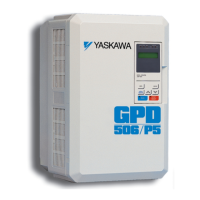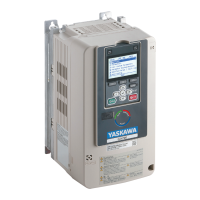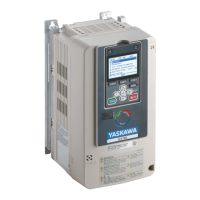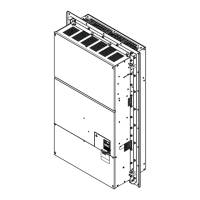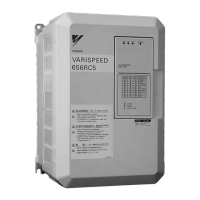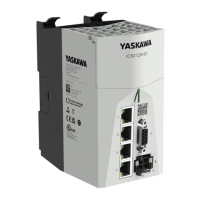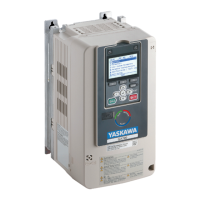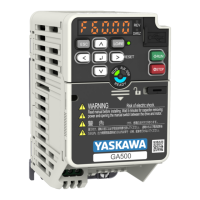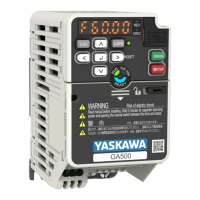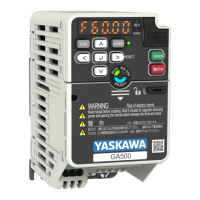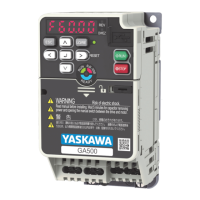Startup Procedure and Test Run
4
4.10 Fine Tuning during Test Runs (Adjust the Control Function)
YASKAWA SIEPC71061705H GA700 Series Technical Manual 197
4.10 Fine Tuning during Test Runs (Adjust the Control
Function)
This section gives information about the adjustment procedures to stop hunting or oscillation errors caused by
control function during a test run. Adjust the applicable parameters as specified by your control method and drive
status.
• V/f Control and Closed Loop V/f Control on page 197
• Open Loop Vector Control Method on page 198
• Closed Loop Vector Control Method on page 200
• Advanced Open Loop Vector Control Method on page 200
• Open Loop Vector Control for PM Motors on page 201
• Advanced Open Loop Vector Control Method for PM Motors on page 202
• Closed Loop Vector Control Method for PM on page 203
• EZ Open Loop Vector Control Method on page 203
Note:
This section only lists frequently adjusted parameters. If you must adjust parameters that have a higher degree of precision, contact
Yaskawa.
◆ V/f Control and Closed Loop V/f Control
Table 4.17 Parameters for Fine Tuning the Drive (V/f and CL-V/f)
Issue Parameter Number Possible Solutions Default Recommended Setting
Hunting or oscillation at mid-
range speeds (10 Hz to 40 Hz)
n1-02 [Hunting Prevention Gain
Setting]
• If torque is not sufficient with
heavy loads, decrease the
setting value.
• If hunting or oscillation occur
with light loads, increase the
setting value.
• If hunting occurs with a low-
inductance motor, for example
a motor with a larger frame
size or a high-frequency
motor, lower the setting value.
1.00 0.10 - 2.00
• The volume of the motor
excitation sound is too high.
• Hunting or oscillation at low
speeds (10 Hz or lower), or at
mid-range speeds (10 Hz to 40
Hz)
C6-02 [Carrier Frequency
Selection]
• If the volume of the motor
excitation sound is too high,
increase the carrier frequency.
• If hunting or oscillation occur
at low or mid-range speeds,
decrease the carrier frequency.
1 (2 kHz)
*1
1 to upper limit value
• Unsatisfactory motor torque
and speed response
• Hunting or oscillation
C4-02 [Torque Compensation
Delay Time]
• If torque or speed response are
slow, decrease the setting
value.
• If hunting or oscillation occur,
increase the setting value.
200 ms
*2
100 ms to 1000 ms
• Torque at low speeds (10 Hz
or lower) is not sufficient.
• Hunting or oscillation
C4-01 [Torque Compensation
Gain]
• If torque at low speeds (10 Hz
or lower) is not sufficient,
increase the setting value.
• If hunting or oscillation occur
with light loads, decrease the
setting value.
1.00 0.50 - 1.50
• Torque at low speeds (10 Hz
or lower) is not sufficient.
• Large initial vibration at start
up.
• E1-08 [Mid Point AVoltage]
• E1-10 [Minimum Output
Voltage]
• If torque at low speeds (10 Hz
or lower) is not sufficient,
increase the setting value.
• If there is large initial
vibration at start up, decrease
the setting value
• E1-08: 15.0 V
*3
• E1-10: 9.0 V
*3
Default setting +/- 5 V
*4
Speed precision is unsatisfactory.
(V/f Control)
C3-01 [Slip Compensation Gain]
Set E2-01 [Motor Rated Current],
E2-02 [Motor Rated Slip], and
E2-03 [Motor No-Load Current],
then adjust C3-01.
0.0 (no slip compensation) 0.5 - 1.5
Speed precision is unsatisfactory.
(Closed Loop V/f Control)
• C5-01 [ASR Proportional Gain
1]
• C5-02 [ASR Integral Time 1
(I)]
*5
Adjust C5-01, C5-02.
• C5-01: 0.20
• C5-02: 0.200 s
• Proportional gain = 0.10 to
1.00
• Integral time = 0.100 to 2.000
s
*1 The default setting changes when the settings for C6-01 [Normal / Heavy Duty Selection] and o2-04 [Drive Model (KVA) Selection]
change.
*2 The default setting changes when the settings for A1-02 [Control Method Selection] and o2-04 [Drive Model (KVA) Selection]
change.
*3 The default setting changes when the settings for A1-02 [Control Method Selection] and E1-03 [V/f Pattern Selection] change.
*4 Recommended settings are for 200 V class drives. Multiply the voltage by 2 for 400 V class drives.
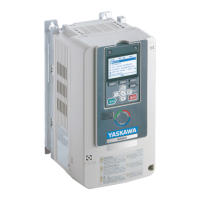
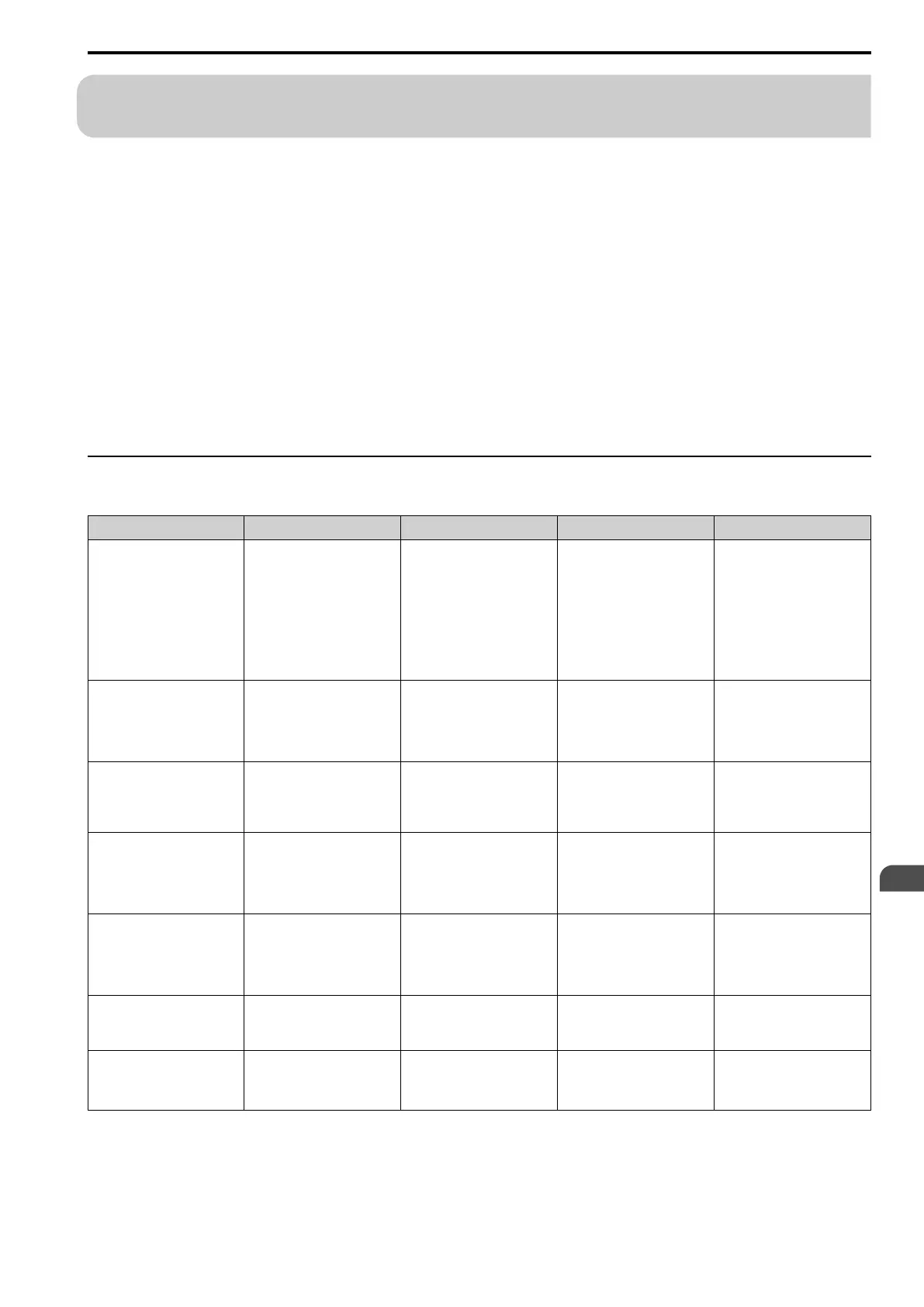